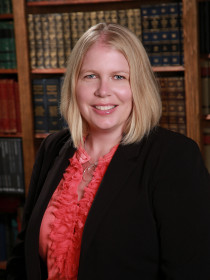Connect with Brie
About Brie
Loskota's research explores how religions change and make change in the world. She is a leading voice working to enhance religious pluralism and community resilience in the US and around the globe. Loskota works with U.S. local, state and federal government agencies to ensure more effective partnership with faith communities on issues including public health, mental health, and disaster response.
Contributions
In the News
Publications
Examines the role religions play in public diplomacy efforts around the globe.
Details the need for increased involvement of the faith community, a discussion of barriers that both public agencies and faith groups face as they attempt to work together. Mentions benefits of bringing public agencies and faith communities together to address important social needs and to be strategic partners with emergency managers.
Examines how the Jewish community of Los Angeles drew on their particular experiences of genocide to expand their activism to the Darfur genocide.
Charts the evangelical Christian work on human trafficking dating back to anti-pornography work and examining their emphasis on rescuing HT victims.
